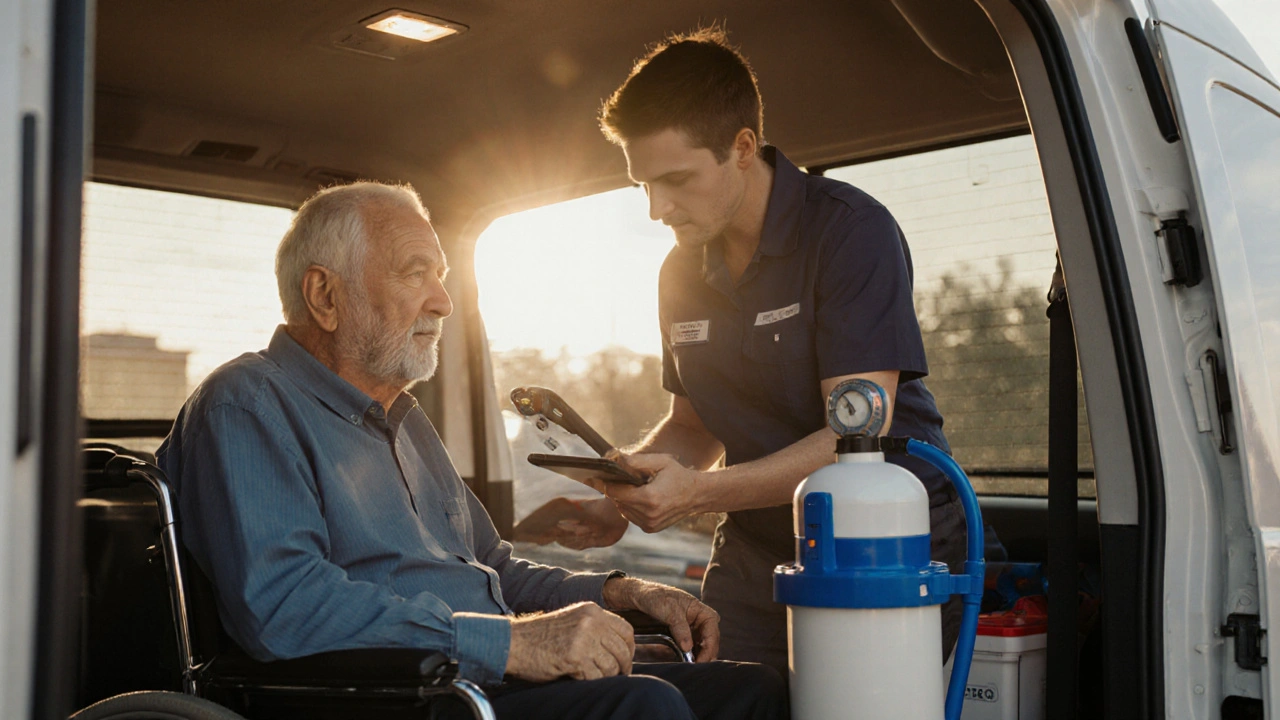Chronic Illness Management: Support, Safety, and Services for Ongoing Health Needs
When you live with a chronic illness, a long-term health condition requiring ongoing care and adjustment. Also known as long-term condition, it doesn’t disappear after a doctor’s visit—it shapes your daily life, your mobility, your access to care, and sometimes even your safety. Managing it isn’t just about pills and appointments. It’s about getting to those appointments. It’s about finding providers who don’t judge you. It’s about having someone beside you when you’re too tired to walk, too nauseous to drive, or too scared to face a system that often ignores you.
This is where medical escort services, trained professionals who assist individuals with transportation and support during medical visits make a real difference. They’re not just drivers—they’re advocates. They help families get kids to pediatric appointments, regular check-ups and treatments for children with chronic conditions when public transport isn’t safe or accessible. They help elderly patients or those with mobility issues get to dialysis, chemotherapy, or physical therapy without risking falls, delays, or abandonment. These services don’t replace doctors, but they remove the biggest barrier: getting there.
And it’s not just about physical transport. For people who are also sex workers, managing a chronic illness often means fighting stigma in clinics, hiding their work to get basic care, or avoiding treatment altogether. That’s why sex worker health, the specific medical and mental health needs of people in the sex industry is a critical part of this conversation. If you’re managing diabetes, arthritis, or PTSD on top of your work, you need providers who understand both your illness and your reality—not ones who turn you away for being "high risk." Tools like multilingual safety cards, secure documentation systems, and non-judgmental clinics aren’t luxuries—they’re lifelines.
Chronic illness management also means knowing your rights when hospitals refuse care, when insurance denies coverage, or when police seize your phone during a routine check. It means understanding how data seizure, the unauthorized access or confiscation of personal digital records by authorities can expose your medical history, your clients, your location, and your vulnerabilities. It means knowing how to protect your financial safety when your bank freezes your account because you use digital payments tied to your health needs.
There’s no one-size-fits-all path. Someone managing lupus might need a medical escort twice a week. Someone with chronic anxiety might need a therapist who doesn’t ask why they’re working in the industry. Someone with arthritis might need help just getting out of bed on bad days. But what connects them all? The need for systems that work for them—not against them.
Below, you’ll find real stories and practical guides from people who’ve been there: how to find safe healthcare providers, how medical escorts make a difference for families and individuals, how digital tools help track symptoms and protect privacy, and how laws and policies either help or hurt those living with long-term conditions every single day. This isn’t theory. It’s what works when you’re tired, in pain, and no one else is listening.

- Nov, 1 2025
- 0 Comments
Chronic Illness Management: How Medical Escorts Coordinate Multiple Appointments
Medical escorts help people with chronic illnesses manage multiple appointments by coordinating transport, medication, equipment, and communication between clinics-reducing missed visits and hospital readmissions.
read more